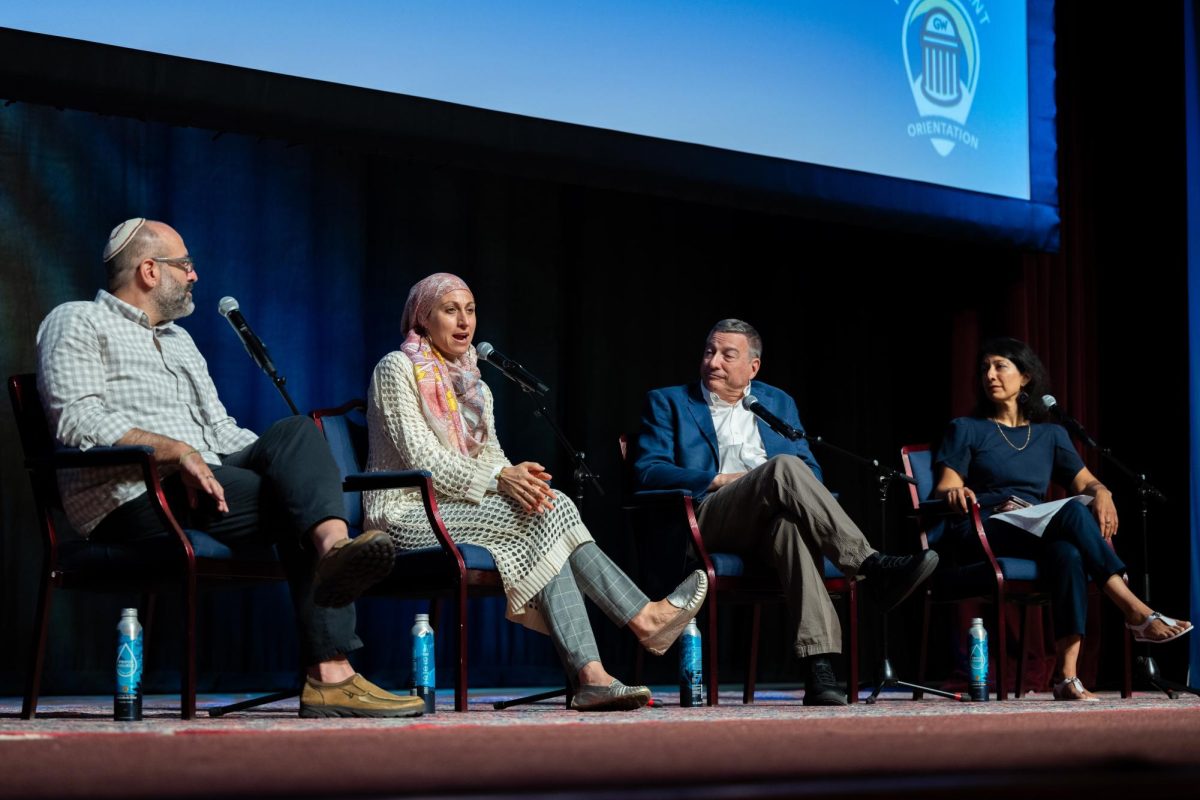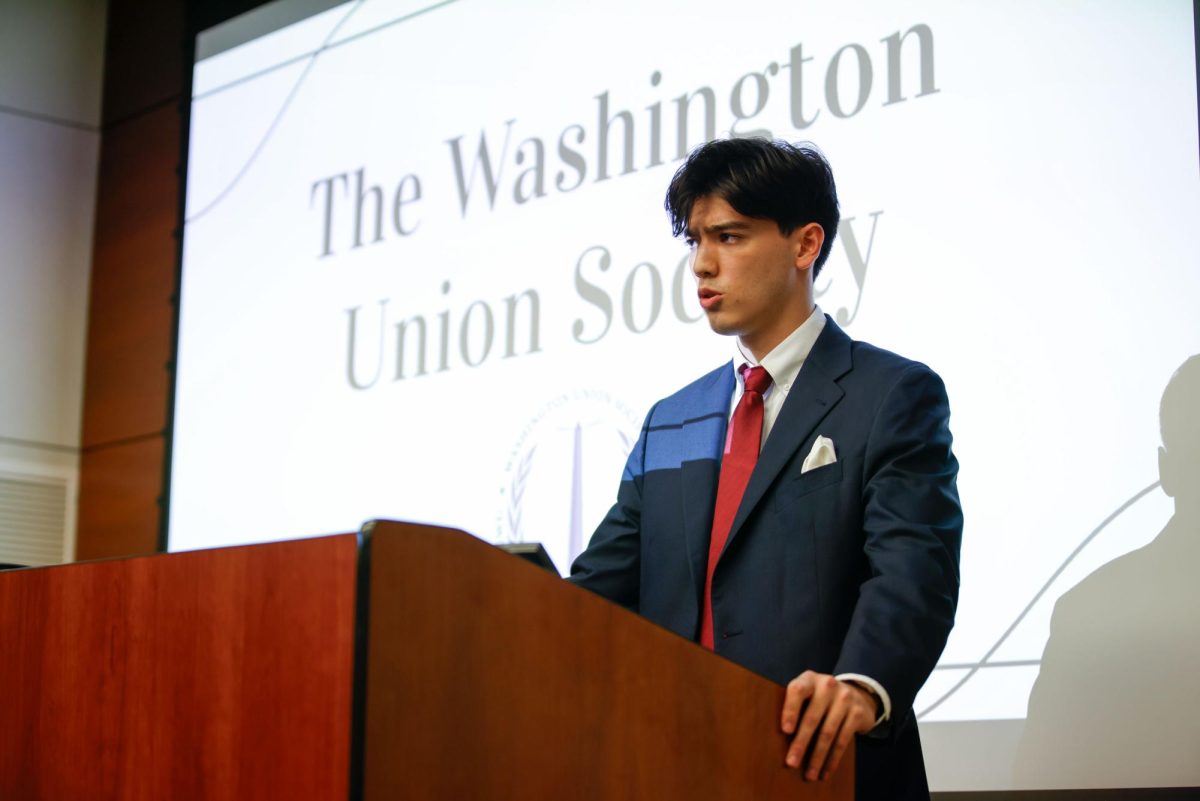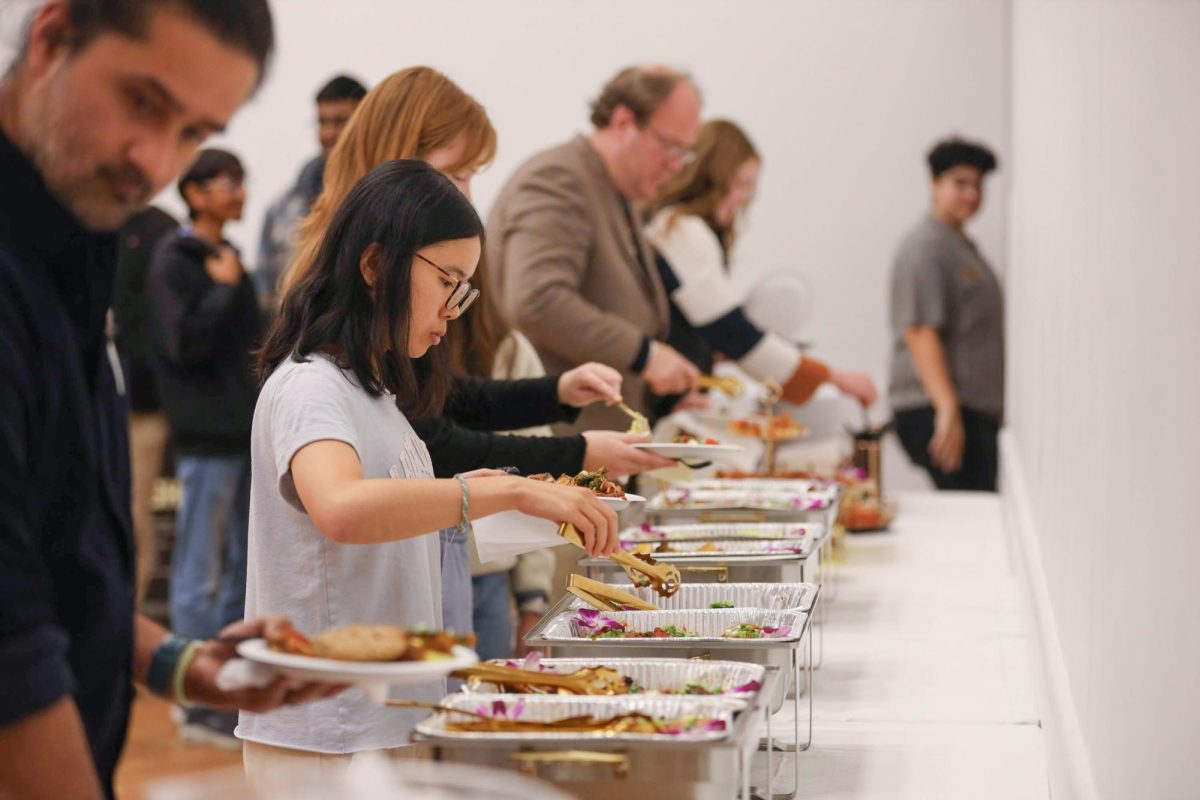An evangelical minister, interreligious practitioner and a Jewish activist discussed bridge building across the political aisle at a new student orientation event in the Lisner Auditorium.
Activist Dr. Homayra Ziad moderated the event titled Faith, Media and Pluralism, in which Dr. Celene Ibrahim, Reverend Dr. Rob Schenck and Rabbi Or Rose each described how empathy can combat hate when political differences get in the way of relationships. The event was hosted by the Division for Student Affairs and was part of this year’s New Student Orientation programming.
Vice Provost for Student Affairs and Dean of Students Colette Coleman made opening remarks on the five guiding principles that new student orientation has been focusing on — curiosity, empathy, exploration, community and critical thinking — as first-years navigate the transition from home to a “broader” community. Officials designed the event to explore how first-years could “get up after failure” and resolve issues as individuals who, with differing views, will face challenges and conflicts.
“You might feel that tension as you start to explore and think about your values. But as we journey together, I want you to begin to think critically about what you hear and about how it applies to your own lived experiences,” Coleman said.
During the discussion, Rose said he was moved by fellow panelist and his longtime friend Ibrahim’s text to him asking how he was doing following Hamas’ Oct. 7 attack on Israel, despite having substantive disagreements over Israel-Palestine relations.
“We talk about prayer or study or other ritual acts as being religious, and we forget that the practice of friendship, of companionship, of community building, are also sacred,” Rose said.
Ziad — an activist and Islamic studies program director at Johns Hopkins University — started out the discussion by introducing her background as a South Asian and Muslim woman and the daughter of a leftist organizer. She said over the years she noticed that individuals must bring personal experience to a conversation without making it about themselves, which allows for their ego to stay in check and avoids anger.
“How do we expect entire systems to move toward compassion when we cannot practice it, toward ourselves and to those closest to us?” Ziad said. “Anger appears when we let our ego take the wheel.”
Ziad circled back to the notion that people, like first-year students acclimating to a new environment, can better open up to others once they find a space to open their hearts.
“In your creative experiences, remember that we are inviting humans and that we need that comfort,” Ziad said.
Schenck, who describes himself first and foremost as a “lover,” told a story about an advocate for abortion rights that he met while leading an anti-abortion group, which coincided with his values at the time. He said as he saw her yell about how she loved her kids, he realized the dangers of “othering” people based on political values.
“I saw the passion and love that this woman had and it shattered that image, that othering, that vilifying,” Schenck said.
As each panelist shared their stories of expanding empathy across picket lines, Schenck recounted a discussion he once attended while in Moracco, between Muslims and Christians. He said while they were in a more professional room things were tense, but once they moved in a location with a warmer atmosphere, they were able to find a “common place.”
“I want to encourage resilience, relational resilience,” Schenck said. “If the relationships matter to you — if you feel that they are mutually enriching — that you are growing and the person with whom you’re in a relationship is growing, that you are helping each other become the people that you want to be. Try and weather some of the storms.”
Ziad said the most impactful activism begins with humility, when the activists take themselves out of the equation and focus on their immediate community, starting with friendships and neighborhoods. Rose closed out the discussion with a Nigunim, a traditional Jewish melody that Rose said is sung to harness energy, presence and breath.
“So in the company of this glorious array of people from diverse walks of life, I want to invite you interpret that however makes sense to you — heart and mind — and I invite you to sing with me or just listen to the melody,” Rose said.











